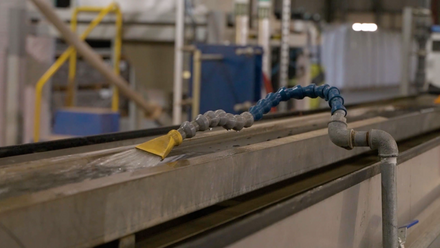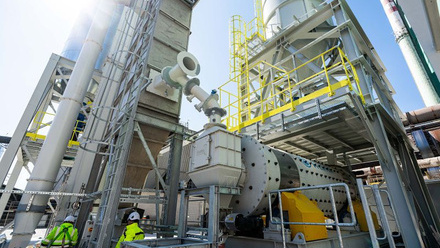Building in resilience in an uncertain market for brick manufacturers
'British manufacturers are battening down the hatches amid a very sharp slowdown' was the sobering message from the manufacturing trade body Make UK in its Q3 Manufacturing Outlook survey.

This was after Make UK had reported stable growth in the second quarter of the year. The organisation has now cut its forecast with output set to fall this year, while the forecast for next year is within the margins of no growth at all.
Verity Davidage, Policy Director at Make UK, comments, 'Manufacturers are seeing a very sharp slowdown in activity as the potent cocktail of rising interest rates, cost of living and slowing overseas markets bites hard…While it’s clear the Chancellor doesn’t have a financial war chest to try and boost growth, he should use his Autumn Statement to bring forward carefully targeted measures which could make a difference to companies’ efforts to boost skills and productivity.'
However, there are some positives. A recent Perception vs Reality report from the trade body reveals how COVID-19 highlighted the crucial role of the industrial base in maintaining national prosperity and wellbeing.
The public perceptions survey finds that 93% of respondents now believe manufacturing is important to the UK economy and over three-quarters see the sector as delivering solutions today to address challenges of tomorrow.
CEO of Make UK, Stephen Phipson, says, 'Manufacturers have been working hard to reduce their energy use and slash carbon emissions – demonstrating their commitment to net-zero. The public has recognised this…But there is still work to be done as over half of the children surveyed had not even considered a job in manufacturing.'
Meanwhile, The Office for National Statistics (ONS) reveals that monthly construction output is estimated to have decreased by 0.5% in volume in July 2023. This follows a 1.6% increase in June 2023. The ONS says the decline came solely from a 1.3% decrease in repair and maintenance, with new work increasing 0.1%.
The Construction Products Association (CPA)’s latest State of Trade Survey reveals that product manufacturing costs have eased but sales growth remains mixed. Heavy side manufacturers’ sales decreased for a fourth consecutive quarter, whereas sales from light side producers registered another quarterly increase.
Rebecca Larkin, CPA Head of Construction Research, says, 'Heavy side sales have no doubt been hindered by the sharp slowdown in new house building and hold-ups in starting large new-build commercial and factory projects…Conversely, interior refurbishments of offices and retail, as well as public sector energy efficiency retrofit, are in full swing and are driving demand for light side products.'
According to the CPA’s Summer Forecast 2023, the construction industry in the UK is expected to experience an acute recession this year driven by double-digit falls in the two largest construction sectors – private housing new build and private housing repair, maintenance and improvement, although the ONS attributes some interim monthly stagnancy to heavy rainfall in July.
CPA Economics Director, Professor Noble Francis, adds, 'The government’s previously stated ambitions – building 300,000 net additional homes per year, investing £600bln in an infrastructure pipeline, delivering Levelling Up, and transitioning to net-zero – all sound like hollow soundbites now given its lack of commitment and investment.'
According to analysis from the Home Builders Federation, scarcity of available properties and barriers to building is driving UK housing further into crisis.
At the time of going to press, brick manufacturers report resilience but challenging times. Latest results from Ibstock reveal that revenue is down in the six months ended 30 June 2023 from £259mln in the same period in 2022 to £223mln in 2023. The firm reports, 'Against the current backdrop of reduced demand and with industry capacity increasing in 2024, we have announced a proposal to close our higher-cost Ravenhead wire-cut brick factory in North West England'. However, 'investment in major growth projects remains on track', and while sales volumes were down, there was improvement across the first half of the year.
Meanwhile, Forterra reports revenue for six months to 30 June was down from £222.8mln in 2022 to £183.2mln in 2023, with progressive signs of market improvement in May and June 2023. Commissioning of the new Desford brick factory is ongoing, while Howley Park has been mothballed and other production reductions completed.
Wienerberger reports group revenues remained “robust” but down from €2,572mln in the first half of 2022 to €2,203mln in the first half of 2023. It notes the firm 'successfully held its ground…Faced with weakening demand, we instantly reacted with strict cost management and a strong focus on working capital management. We have already taken initial steps aimed at adjusting production capacities by reducing the number of shifts and mothballing the first plants'.
Michelmersh revenues are up from £34.0mln up to June 2022 to £42.0mln in the six months ending 30 June 2023. They note, 'a strong opening order book underpinned first half performance, despite sector wide c.25% decline in brick volume demand', with FabSpeed revenue included for the first time.







